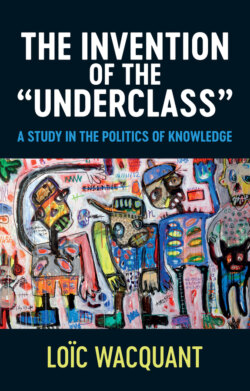Читать книгу The Invention of the 'Underclass' - Loic Wacquant - Страница 9
Concepts matter
ОглавлениеIt turns out, upon close scrutiny, that this “terministic screen” was not a reflection of reality so much as a deflection from reality.2 The “underclass” started out as a proto-concept à la Robert K. Merton, that is, “an early, rudimentary particularized, and largely unexplicated idea,”3 but quickly morphed into an instrument of public accusation and symbolic disciplining of the threatening black precariat in the hyperghetto – the novel sociospatial constellation that emerged from the rubble of the communal ghetto of the Fordist era.4 It follows that the notion enters into the sociology of urban marginality, not as tool, but as object of analysis, and an object whose study has much to teach us about the political epistemology of dispossession and dishonor in the city as well as about the craft of concept-making more generally.
Inspired by the Begriffsgeschichte of Reinhart Koselleck and the reflexive sociology of Pierre Bourdieu,5 the present book offers a kind of “microhistory” of the “underclass,” centered on the period of its hegemony. I pay close attention to the circumstances of the invention, the timing of the diffusion, and the variegated meanings of the term as well as to the institutional positions of those who pushed for and (more rarely) against its deployment. I draw up a genealogy of the notion by tracking its peregrinations across the boundaries of the scientific, journalistic and political fields from the heady days of the progressive 1960s to the somber years of the neoconservative 1980s and the late boom of the neoliberal 1990s.
Turning to anatomy, I distinguish three faces of the “underclass”: the structural conception coined by the Swedish economist Gunnar Myrdal to forewarn about the dire consequences of postindustrialism for working-class formation; the behavioral view favored by policy researchers and think-tank experts, which quickly diffused to achieve hegemonic status; and the neo-ecological approach developed by the sociologist William Julius Wilson to highlight the role of the neighborhood as multiplier of marginality. Together, these form what I call the “Bermuda triangle of the underclass,” in which the historical nexus of caste, class and state in the metropolis effectively vanishes from sight.6
